by Christopher Perrin, PhD | Mar 3, 2015 | Articles
Gilbert Highet wrote a book in 1950 called The Art of Teaching. Highet was a well-regarded teacher of classics at Columbia University (a colleague with Jacques Barzun) and he knew very well that the teaching profession was rapidly being transformed into a science by his fellows at the nearby Columbia Teacher’s College.
The Columbia Teacher’s College has been the single most influential institution for the advancement of progressive education—I think few would dispute this. In 1950, however, Highet disputed one central claim set forth by progressive educators everywhere—the claim that education should be studied, assessed, advanced and practiced as a science. There were reasons for the ascendency of this view of things.
Much progress had been made in science and technology by 1950. The car had long since revolutionized society (America in particular) and the airplane was coming into its own—with the advent of jets. In just 19 years we would land a man on the moon. The social sciences were also growing rapidly and growing in respect. Since World War I, psychological testing was being used to assess aptitudes and predict what kinds of occupations and jobs would be fitting for hundreds of thousands of human beings.
Perhaps, using the scientific method and the insights of the new social sciences, we could indeed transform education into a predictable, controlled process that would ensure our preferred results. Perhaps we could apply tested techniques that would “socially engineer” the kinds of citizens our growing nation needed. Just maybe we were on the cusp of a revolution in education, much like we had experienced in transportation and industry. It certainly seemed worth a try—
Still, to the contrary, Highet argued that education is an art and not a science:
It seems to me various dangerous to apply the aims and methods of science to human beings as individuals, although a statistical principle can often be used to explain their behavior in large groups and a scientific diagnosis of their physical structure is always valuable. But a “scientific” relationship between human beings is bound to be inadequate and perhaps distorted. Of course it is necessary for any teacher to be orderly in planning his work and precise in his dealing with facts. But that does not make his teaching “scientific.” Teaching involves emotions, which cannot be systematically appraised and employed, and human values, which are outside the grasp of science. A “scientifically” brought up child would be a pitiable monster. A “scientific” marriage would be only a thin and crippled version of a true marriage. A “scientific” friendship would be as cold as a chess problem. “Scientific” teaching, even of scientific subjects, will be inadequate as long as both teachers and pupils are human beings. Teaching is not like inducing a chemical reaction: it is much more like painting a picture or making a piece of music, or on a lower level like planting a garden or writing a friendly letter. You must throw your heart into it, you must realize that it cannot all be done by formulas, or you will spoil your work, and your pupils, and your self.
Note how Highet does give science its due respect and commendation. Science does inform education in many rewarding ways, though teaching itself is not a science. This distinction is important and where the controversy lies. Classical educators should pay attention to much that scientific inquiry discovers that is relevant to education. Neurology, educational psychology and educational sociology can provide us with insights to how, and when, and in what setting we teach. We can learn much from scientific research that informs (even enriches) our teaching. Still, teaching itself is a human art, governed primarily by our anthropology, our view of what human beings are and their purpose. Christians in the classical tradition, will view humans as enfleshed and created souls, that while having some things in common with animals, transcend the animal kingdom.
Thus Highet essentially argues that “scientific teaching” is a kind of a category mistake. Humans are not raw material (like metal and rock) to be fashioned into products. Nor are humans mere animals that should thus be best trained by behavioral conditioning (though we should not deny that such conditioning can in some ways change behavior—we just are hesitant to call modified behavior education). Our inherited vocabulary for education hint at uniquely human aspects of teaching. The traditional approach to education sought to fully “humanize” people by teaching “the humanities.” The traditional goals of education were wisdom, eloquence and virtue—traits that no animal could ever possess.
James K. A. Smith has said (in Desiring the Kingdom) that every pedagogy assumes and anthropology. Some 65 years ago Gilbert Highet said much the same thing. Is education an art or a science? Much depends on preceding questions about the nature of humanity itself.
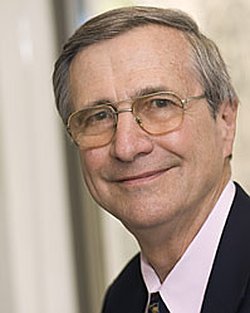
by Christopher Perrin, PhD | Feb 4, 2015 | Articles
Peter Kreeft (professor of philosophy at Boston College) has written several celebrated books on theology, philosophy and apologetics (Socratic Logic, Practical Theology, Summa of the Summa, Handbook of Christian Apologetics—just to name a few.) He has also written the foreward to the Liberal Arts Tradition: A Philosophy of Christian Classical Education (by Kevin Clark and Ravi Jain). Here is an excerpt from his foreward in which he argues for the classical education in his ironic way. I particularly enjoy the way he turns the typical objections to classical education on their head and shows how they are indeed arguments for classical education. Enjoy—and pick up the Liberal Arts Tradition if you have not read it yet. It is well worth the read as Kreeft suggests. You can peruse Kreeft’s books here and learn more about the Liberal Arts Tradition here.
Foreward to The Liberal Arts Tradition
by Peter Kreeft
Plato said a lot of foolish things in his Republic about an ideally just society, but one very central thing that he said in that work was not foolish at all but very wise: the single most important thing that makes a society good, and just, and wise, and happy is education.
Do you want the very best middle and high school education for your children? Then read this book and find a school that believes and practices its principles.
This book is about a complete education in the “liberal arts,” which are the fundamental subjects that students will need as a foundation to build on for the rest of their educational life, no matter what specialized subjects they take later, in college and graduate school. Most important of all, these are the subjects we need to know for life, for a life that is free and not slavish (thus the term “liberal education”).
Just look at this book’s table of contents to see how much is included in this. It’s more than the old “seven liberal arts,” but it builds on them.
It is an education of the whole person, not just the calculating intellect. But it is not less “intellectual” for that, but more so.
It is based on the “tried and true” tradition of liberal education invented by the greatest minds in history. Here you will meet Socrates, Plato, Aristotle, Christ, Augustine, Aquinas, Pascal, C.S. Lewis. It is the best of the old and the best of the new. It is not the “politically correct” education offered by our ever-declining and continually dumbed-down state schools. In fact it compares to that as a Jane Austen novel compares to a pothead’s addled dream.
As our culture becomes more decadent, spiritual survival reactions to it become tougher and tighter, just as the body’s white corpuscles organize to combat an infection. As bad gets worse, good gets better. And the contrast gets clearer and stronger.
This is not “mainstream” education. And the educational establishment feels deeply threatened by it, and offers at least eight silly objections to it that are really advertisements for it.
- It’s “divisive.” It’s not what everyone else is doing. It marches to a different drummer. It cultivates excellence rather than conformity. Yes it does. And this is actually sometimes used as an objection rather than as a selling point!
- It’s old, outdated, unfashionable. Yes it is, like honor, courage, integrity, and honesty. It doesn’t try to tell the truth with a clock; it doesn’t practice chronological snobbery. In an age which has embraced every novelty, the true rebel is the traditionalist.
- It’s not in line with modern philosophies: skepticism, cynicism, subjectivism, relativism, naturalism, materialism, reductionism, positivism, scientism, socialism. That’s exactly right. It’s not. It’s countercultural. It harnesses teenagers’ natural proclivity to rebel and turns that force against “the bad guys” who are now the “establishment” instead of against “the good guys.”
- It’s “judgmental.” It believes there really is good and bad, true and false. The typical modern education is judgmental only against being judgmental, and skeptical of everything except skepticism.
- It’s small. It’s private. It’s grassroots. It’s implemented mainly in small schools, not big ones. This is true, and it’s another plus rather than a minus. “Small is beautiful.” The bigger the school, the more standardized it has to be and the more the person tends to get lost in the system and get identified with his or her race, economic class, gender, sexual orientation, or political party.
- It seeks the truth for its own sake, not primarily for pragmatic uses. It aims at wisdom, not wealth. It makes its graduates philosophers instead of millionaires. This is also true. But it’s not a fault. As Chesterton says, “Man’s most practical need is to be more than a pragmatist.”
- It’s not specialized. It doesn’t include courses on underwater basket weaving or pickling and fermentation (which was actually a major at Ohio State). It doesn’t teach you clever ways to outguess Microsoft word, or the government, or lawyers, or your professor, or the standardized tests. It just teaches you how to think and how to live. But businesses, law schools, and government agencies don’t want specialist drudges and drones; they want people who can read and write and think logically and creatively.
- It’s religious. It’s Christian. It doesn’t pretend that the most important man who ever lived never lived, as our public education now does. It assumes that the supernatural is not the enemy to the natural, that “grace perfects nature rather than demeaning it,” as light perfects all colors.
This little book is a description of that educational program. It’s precious—because children are precious.
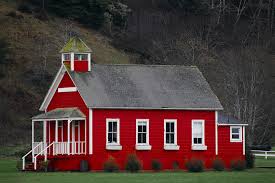
by Christopher Perrin, PhD | Jan 9, 2015 | Articles
Most of us are seeking to educate in small settings—in our own homes, in community co-ops, in small classical schools. One might think we are doing so because we are in retreat, having left the big institutions (like the public schools) to do what we must do on our own, because the big schools have gone sour. In other words, one might think we are public school refugees.
If the big schools would simply return to the ideals of a classical, liberal arts education—wouldn’t we return to them? I doubt most of us would. This is because education is done best in small communities with teachers who love their students. Christ says that when a student is fully trained he will be like his teacher (Luke 6:40). Now to be fully trained by a teacher assumes a meaningful relationship, as the context of Luke 6 makes clear (how does one remove a speck from a brother’s eye?).
We are a small company serving a small segment of American education. We are glad to be a growing company, but also glad to be a growing small company. We enjoy each other, and have meaningful collegial relationships here at CAP. We love our work and love each other. We trust that this true of most of you too—educating in the setting of your home or a small classical school. These small knots of love and learning add up to something of countless value and enormous impact.
So as we celebrate the coming of Christ as a baby born into a humble Jewish family—we raise a glass to all of you who are loving and cultivating your own in the small ways that can transform the world.
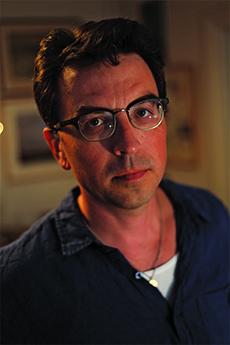
by Christopher Perrin, PhD | Nov 19, 2014 | Articles
This article below is posted with grateful permission from Dr. Scott Samuelson and Rhodes Magazine in which the article appeared in November, 2014.
The Atlantic
Traditionally, the liberal arts have been the privilege of an upper class. There are three big reasons for this. First, it befits the leisure time of an upper class to explore the higher goods of human life: to play Beethoven, to study botany, to read Aristotle, to go on an imagination-expanding tour of Italy. Second, because their birthright is to occupy leadership positions in politics and the marketplace, members of the aristocratic class require the skills to think for themselves. Whereas those in the lower classes are assessed exclusively on how well they meet various prescribed outcomes, those in the upper class must know how to evaluate outcomes and consider them against a horizon of values. Finally (and this reason generally goes unspoken), the goods of the liberal arts get coded as markers of privilege and prestige, so that the upper class can demarcate themselves clearly from those who must work in order to make their leisure and wealth possible.
“Why I Teach Plato to Plumbers:
Liberal Arts and the Humanities Aren’t Just for the Elite”
Scott Samuelson
In the democracy of ancient Athens and the republic of ancient Rome, freedom was only for the few. Slaves, servants, and women had to toil so that free men could cultivate their minds, participate in the government, and enjoy the highest goods of human life—in short, so they could learn and practice the liberal arts.
Our government takes inspiration from Athens and draws on the model of the Roman Republic, but we also inherit the Enlightenment ideal of freedom for all, even if our history has never quite lived up to it. My view—inspired by a long line of American thinkers going back to Thomas Jefferson—is that in a democratic republic the liberal arts should not be the exclusive privilege of the few. We should all have access to an education in thinking and judging for ourselves. The main goals of elementary and secondary education should center on cultivating the liberal arts, and citizens should have the opportunity to study the liberal arts in college without incurring onerous debt.
I’m not saying that we shouldn’t have opportunities for job training in our educational institutions. The reason that ancient Athenian and Roman citizens could devote themselves whole-heartedly to the liberal arts was precisely that the servile did the work necessary to sustain freedom. Part of the genius of the American educational system is that it mixes liberal and technical education. A just democracy requires that we all pitch in when it comes to the economy.
If anything, I’d like to see more real technical education in elementary and primary schools. There’s no reason that a person with a high school diploma shouldn’t be expected to know something and to do something. Furthermore, I’m grateful that our colleges and universities help their students get employable skills. But the dominant note of an education in a liberal democracy should be the cultivation of freedom, not of employability. We rightly want people to have gainful employment, but American citizens should do their work with a spirit of independence, creativity, and self-reliance.
The powerful trends in education right now are all about standardization, rubrics, passing tests, and compliance, which read as forms of servility rather than freedom. Insofar as the private goal of education is about jumping through the hoops necessary to get hired and the rationale for public education is about growing the economy, I worry that we’re striking a blasé Hobbesian bargain of giving up our freedom to big corporations and government agencies in return for the promise of security.
At the end of the Cold War, Francis Fukuyama famously declared that we’d reached “the end of history,” by which he meant that all peoples would eventually settle into liberal democracy. It’s not simply the authoritarian capitalism of China and the violent theocratic movements of the Middle East that challenge his thesis. It’s that we ourselves run the danger of becoming illiberal.
A century ago, when America was tilting toward inequality and empire, the great American philosopher William James said, “Nothing future is quite secure; states enough have inwardly rotted—and democracy as a whole may undergo self-poisoning. But, on the other hand, democracy is a kind of religion, and we are bound not to admit its failure. Faiths and utopias are the noblest exercise of human reason, and no one with a spark of reason in him will sit down fatalistically before the croaker’s picture. The best of us are filled with the contrary vision of a democracy stumbling through every error till its institutions glow with justice and its customs shine with beauty.”
In the decades following James’ stirring remarks, our country stumbled toward institutions and customs that glowed with a little more justice for workers, women, and black Americans. Twentieth-century America gave birth to a world-class public educational system that, for all its flaws, gave an astonishing number of people a distinctive liberal education. Unfortunately, for a few decades now we’ve been walking with misplaced confidence toward inequality and empire once again.
But we should refuse to “sit down fatalistically before the croaker’s picture.” As a new world order is taking shape, we have the opportunity to shine like never before as the country where, with the help of the liberal arts, citizens widely participate in the government, workers have a voice in an innovative economy, and the widest number of people enjoy the best of the human inheritance.
Scott Samuelson, the author of The Deepest Human Life: An Introduction to Philosophy for Everyone (University of Chicago Press, 2014), is giving the lecture “Suffering and Soul-Making: On the Deep Value of the Liberal Arts” on January 15, 2015, as part of Rhodes’ Communities in Conversation series.
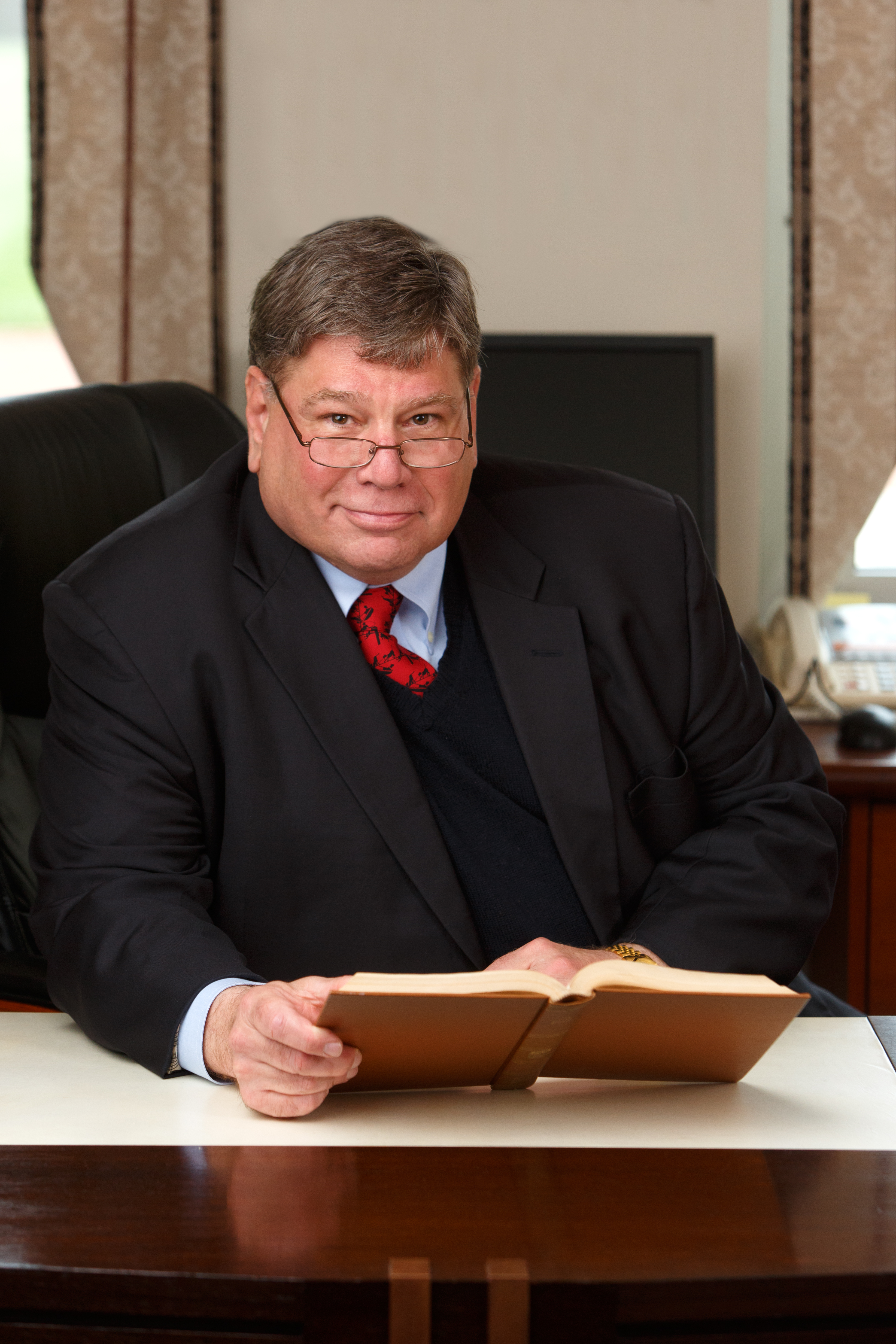
by Christopher Perrin, PhD | Nov 17, 2014 | Articles
We are delighted to present a blog post by Christopher B. Nelson, president of St. John’ s College in Annapolis, and a national spokesperson for the liberal arts. http://www.sjc.edu/
St. John’s College, with campuses in Annapolis, Maryland, and Santa Fe, New Mexico, is an independent, four-year college that is devoted to liberal education. Its richly varied curriculum focuses on an integrated study of philosophy, literature, history, theology, political science, mathematics, music, and science. Students and faculty engage directly, through study and discussion, with original texts and ideas that are at the foundations of Western thought. You can find this article and many others at http://blogs.sjc.edu/christopher-nelson/
This article is published with permission from St. John’s College.
Lincoln and Liberal Education
Christopher B. Nelson
Abraham Lincoln remains alive to us these days, in part because of the extraordinary performance by Daniel Day Lewis in the film Lincoln. In one thoughtful scene, Lincoln sits in a teletype office and wrestles with the question of human and racial equality and the awful institution of slavery. He harkens back to one of the great foundational texts of western civilization, Euclid’s Elements, a beautiful book of elementary geometry written over 2,000 years ago.
In the film, Lincoln cites Euclid’s first common notion: “Things which are equal to the same thing are equal to each other.” He calls it true “because it works, always has done and always will do.” And then he reminds us that Euclid called it “a self-evident truth”, putting us in mind of another great work of civilization, America’s own Declaration of Independence: “We hold these truths to be self-evident: that all men are created equal, that they are endowed by their creator with certain unalienable rights, and that among these are life, liberty, and the pursuit of happiness.”
Lincoln, self-educated, a versatile and critical thinker, questioned prevailing assumptions of his day, and, in his search for truth, drew upon mathematical axioms as a storehouse of principles he might apply to his political philosophy. This is what liberally educated people do, people who are broadly and deeply educated in the great movements of history, in the foundational texts and fundamental insights of physics and philosophy, literature and biology, music and theology, sociology and yes, mathematics — people who have acquired a kind of worldly wisdom that allows them to rise above and see behind the barriers to understanding and action, and take the imaginative leap that is often necessary to solve a problem or find a solution. These are also the people who have developed the skills of listening attentively, speaking persuasively, arguing logically and working collaboratively to bring an idea to fruition.
Lincoln was a practical man, a worldly politician, not just a theoretical thinker. Was it true, he must have asked himself, that the truths proclaimed in the Declaration were self-evident? And if self-evident, then why were they not universally recognized and slavery abolished? So the practical man in Lincoln must have come to the conclusion that if they were not self-evident or their self-evidence not sufficient, they would have to be proved — some four score and seven years after the writing of the Declaration. Thus, his Gettysburg Address changed the terms of the question from “holding a self-evident truth” to “dedicating oneself to a proposition” that all men are created equal. No longer an axiom of mathematical logic accessible to reason, this would become a proposition requiring proof in action, following an act of will, in a great civil war, dedicating thousands and thousands of lives in the interest of securing freedom for those who had been denied the right to claim equality under the law. And still more, Lincoln asked “that from these honored dead we take increased devotion to that cause for which they gave the last full measure of devotion…”
This rhetorical change in our founding document represented a momentous re-founding of our nation, from one resting on an axiom of reason to one requiring our dedication to realizing the dream of equality through an act of liberation.
This commitment to liberation, to the principles of liberty, to freedom of speech and action, is what undergirds our nation. And it is our national duty to assure that each generation of citizens is well educated in the arts of freedom to protect them from attack and from atrophy. It ought to be the first concern of our schools, from pre-kindergarten through college, that our young acquire the freedom to make intelligent choices concerning the ends and means of both their public and private lives. This requires the cultivation and practice of the art of reason and understanding and discipline in analysis, argument and interpretation so that they may be free from the tyrannies of unexamined opinions, current fashions and inherited prejudices.
Our nation was founded on the idea that good government is grounded in its citizens’ intellectual freedom; our strength depends upon this idea. Our economy is grounded in the notion of free enterprise; the freedom we have to test our ideas against the needs and demands of the community has helped build the prosperity we have enjoyed as a society. This too depends upon the intellectual freedom of our citizens. And so it is with our social order and moral character.
For the sake of our country, then, we need our citizens to have two kinds of education that are in a very healthy tension with one another: (1) an education in the political and intellectual foundations, including the economic, scientific and social traditions and principles that have shaped our nation, and (2) an education in the arts needed to question and examine those very foundations and traditions in the light of reason, so that we may keep them vibrant and alive, and so that we may redefine and improve on them when we discover we have good cause. These are called the arts of freedom because they are grounded in the kind of free inquiry that helps us understand our world better and inspires in us a sense of wonder and longing to learn more.
Our nation’s liberal arts colleges were established to help cultivate this freedom of intellect through examining the seminal texts that underlie and inform our understanding of the world, and through developing the arts of inquiry. These colleges are dedicated to cultivating the arts of freedom to develop the self-sufficiency that is fit for our republic—fit for a republic that champions the right of all of its citizens to pursue the happiness that belongs to them, for making a life worth living, one that brings opportunities for success in making a living too.
We who are responsible for our nation’s liberal arts colleges take this to be our public trust, one to which we give a full measure of devotion. We serve the common good, and this in turn serves our nation well, keeping it strong and vibrant, able to undertake the challenges of tomorrow because it has a citizenry that has some understanding of the intellectual and moral virtues required and the strength of will to use them well—a fitting legacy of Abraham Lincoln.
I confess to taking special delight in the response to the Lincoln movie by many members of the St. John’s College community to which I belong, celebrating that scene where Lincoln was shown to have read Euclid’s Elements, a seminal book read by every St. John’s student, just as every St. John’s student later reads this country’s founding documents and Lincoln’s speeches. The spotlight shown by the film on all of these texts rightly justifies our calling them great and transformative, words that we apply to the liberal education they make possible.
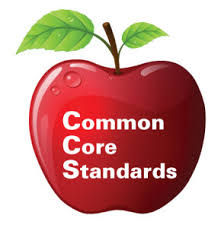
by Christopher Perrin, PhD | Nov 4, 2014 | Articles
When I first heard the Common Core discussed in a news report, I had a schizophrenic reaction. Being an ardent advocate for the classical tradition of education, I responded positively to its captivating name. Classical educators love and support the idea that there is a “core curriculum” –-a core (even a canon) of great books, great ideas and great arts that should be studied. We also support the notion that these great ideas should be the common study and treasure of the entire nation. Much of this thinking is embedded in E.D. Hirsh’s Core Knowledge curricula, for example. But then I had another reaction: what I heard of this Common Core, turned out to be nothing like the classical tradition, but rather something quite uncommon to it. As I read and listened, it became clear that the Common Core Standards (CCS) were progressive education theory with a classical name. The name connotes or suggests something that it is not—at least to anyone familiar with traditional and classical education. (more…)












